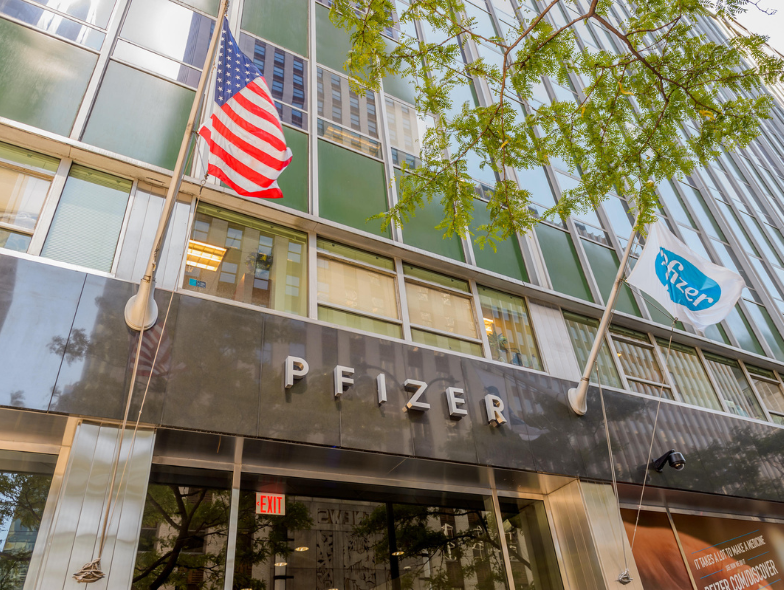Pfizer acquires Seagen to become the leading innovator in cancer therapy

Pfizer makes a bold move in the acquisition of innovative cancer therapy biotechnology company Seagen, the move means the doubling of their pipeline of early-stage therapeutics and gaining four leading ADC therapies.
In a deal worth $43 billion, Pfizer has acquired global biotechnology company Seagen. Seagen is dedicated to discovering and developing revolutionary therapies for cancer.
Through the merger with Pfizer, both Boards of Directors are enthusiastic about the combined ability to improve the lives of patients.
“Pfizer is deploying its financial resources to advance the battle against cancer, a leading cause of death worldwide with a significant impact on public health,” stated Albert Bourla, Pfizer Chairman and Chief Executive Officer. “Together, Pfizer and Seagen seek to accelerate the next generation of cancer breakthroughs and bring new solutions to patients by combining the power of Seagen’s antibody-drug conjugate (ADC) technology with the scale and strength of Pfizer’s capabilities and expertise. Oncology continues to be the largest growth driver in global medicine, and this acquisition will enhance Pfizer’s position in this important space and contribute meaningfully to the achievement of Pfizer’s near- and long-term financial goals.”
Seagen is expected to show a 12% year-on-year growth in 2023, which equates to $2.2 billion in revenue from it’s four flagship medicines, and other royalties. Subject to regulatory approval Seagen’s new medicine candidates are also expected to show good growth, with Pfizer anticipating revenue reaching $10 billion in 2030 and a strong growth outlook from then on.
Seagen is a leader in the development of antibody-drug conjugates (ADCs) in cancer treatment, with four FDA-approved medicines, out of a total of 12 ADCs available on the market. Seagen employs two main novel technologies to develop transformative cancer therapeutics. ADCs use antibodies to target specific cancer cells, and deliver small molecule drugs directly to the tumour site. This improves the efficacy of the drug whilst minimising side effects for patients. The ADC portfolio from Seagen, developed over the last 25 years, includes Adcetris® (brentuximab vedotin), Padcev® (enfortumab vedotin), Tivdak® (tisotumab vedotin), and Tukysa® (tucatinib). They have new medicines in the pipeline as well as upcoming testing on their existing ADCs for new indications, setting them up in a good position for the next few years.
Their other technologies, including sugar-engineering antibody technology, ensures a broad pipeline ahead of the merger with the capability to hopefully treat large patient populations on a global scale. Through the acquisition the companies are hoping Pfizer’s expertise in protein engineering and medicinal chemistry will compliment Seagen’s ADC technology to contrive novel targets and biologics, and drive drug development.
Seagen are working on a number of other avenues for innovation in their technology capabilities, including in Investigational New Drug Applications and antibody platforms such as bi-specific antibodies that work cohesively with the immune system to target tumours.
“Pfizer shares our steadfast commitment to patients, and this combination is a testament to the passion, dedication, and talent of the Seagen team to achieve our mission to discover, develop, and commercialise transformative cancer medicines that make a meaningful difference in people’s lives,” explained David Epstein, CEO at Seagen. “The proposed combination with Pfizer is the right next step for Seagen to further its strategy, and this compelling transaction will deliver significant and immediate value to our stockholders and provide new opportunities for our colleagues as part of a larger science-driven, patient-centric, global company.”
Currently, Pfizer has an impressive cancer medicine portfolio, with 24 approved therapies, including the best-selling medicines for metastatic breast cancer and prostate cancer. In clinical development stages they have 33 programmes, a figure that would double once the merger with Seagen is complete.
“Over the past decade we’ve taken bold new approaches to translating scientific research into effective medicines for people living with cancer, and we have pioneered several breakthroughs in breast cancer, genitourinary cancer, haematological malignancies, and precision medicine,” said Chris Boshoff, Chief Development Officer Oncology and Rare Disease, Pfizer. “The addition of Seagen’s world-leading ADC technology will position us at the forefront of innovative cancer care, and strongly complements our existing portfolio across both solid tumours and hematologic malignancies. We believe the combination of our teams, and respective areas of strength and global footprints will allow us to realise Seagen’s potential and advance even more potential breakthroughs to patients with cancer.”
Subject to closing conditions and the approval of stakeholders, the two pharma giants expect the acquisition to be completed by early 2024.
Related News
-
News On Track at Pharmapack 2024 - The Track Sponsor interview: BD Pharmaceuticals
January 2024 brings both a new year and Europe’s leading packaging and drug delivery event. Bringing the world’s experts in pharmaceutical packaging together in Paris, France, Pharmapack 2024 brings exciting opportunities to learn and colla... -
News Patients vs Pharma – who will the Inflation Reduction Act affect the most?
The Inflation Reduction Act brought in by the Biden administration in 2022 aims to give better and more equitable access to healthcare in the USA. However, pharma companies are now concerned about the other potential costs of such legislation. -
News Roche breaks into the obesity drug market with the acquisition of Carmot Therapeutics
In a bid to diversify their therapeutic offerings, Roche takes over Carmot Therapeutics in $2.7 billion deal, with one obesity drug spearheading the venture into the field as they prep for a Phase II in-human trial. -
News Biden backs Cold-War measures to shore-up medical supply chains
In a recent strategy to combat rising inflation and the cost of living crisis, President Joe Biden has invoked a Cold War-era act to increase investment in a selection of medicines and supplies. -
News Women in Pharma: Delivering solutions for gender diversity
In our new monthly series, we interview women from across the pharmaceutical industry and supply chain to discuss the importance of gender diversity in healthcare, the workplace, and beyond. -
News CPHI Barcelona Speaker Interview – What the US FDA’s Quality Management Maturity Means for the Pharma Industry
At CPHI Barcelona (24–26 October, 2023), we spoke to Sireesha Yadlapalli, CEO of Pharmatech Associates, who gave a presentation on the implications of the US FDA’s Quality Management Maturity (QMM) Initiative, and spoke on the panel of the ... -
News CPHI Podcast Series: What does the changing US Pharma market mean for industry and patients alike?
In this week's episode of the CPHI Podcast Series Lucy Chard, Digital Editor for CPHI Online is joined by James Manser to discuss the political and market changes in the US pharma field. -
News Wegovy and weight-loss drugs driving demand for manufacturers that can fill syringes
Injectable weight-loss treatments are prompting contract manufacturers to invest and include fill-finish services into their service portfolios, in a bid to attract pharmaceutical giants developing drugs similar to Novo Nordisk's Wegovy.
Position your company at the heart of the global Pharma industry with a CPHI Online membership
-
Your products and solutions visible to thousands of visitors within the largest Pharma marketplace
-
Generate high-quality, engaged leads for your business, all year round
-
Promote your business as the industry’s thought-leader by hosting your reports, brochures and videos within your profile
-
Your company’s profile boosted at all participating CPHI events
-
An easy-to-use platform with a detailed dashboard showing your leads and performance
.png)




.png)

